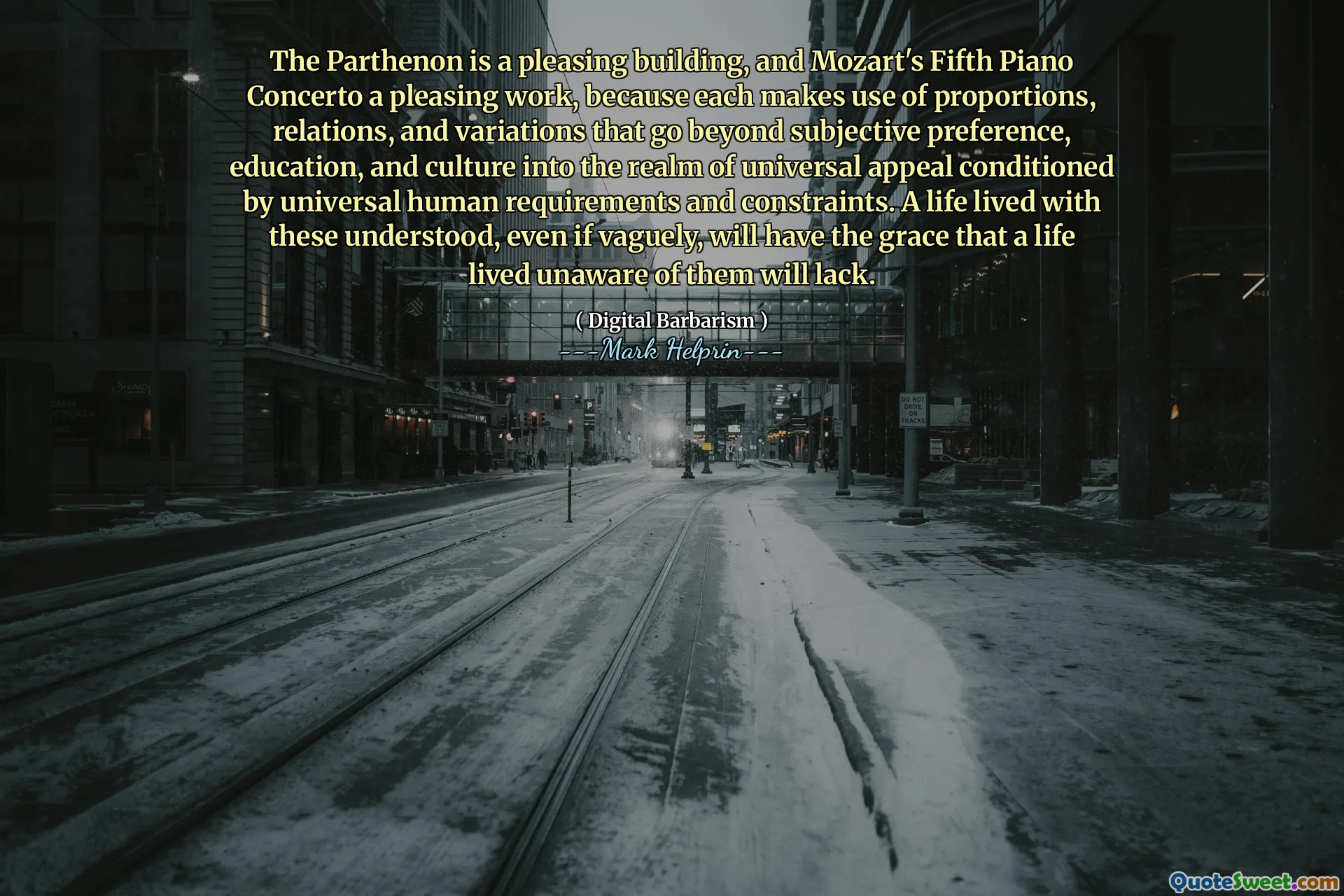
The Parthenon is a pleasing building, and Mozart's Fifth Piano Concerto a pleasing work, because each makes use of proportions, relations, and variations that go beyond subjective preference, education, and culture into the realm of universal appeal conditioned by universal human requirements and constraints. A life lived with these understood, even if vaguely, will have the grace that a life lived unaware of them will lack.
The Parthenon and Mozart's Fifth Piano Concerto exemplify universal principles of beauty through their proportion and structure. These works transcend individual tastes and cultural backgrounds, appealing to fundamental human needs and constraints. This suggests that the aesthetic qualities found in art and architecture can resonate on a deeper level, connecting people regardless of their personal preferences.
Mark Helprin argues that understanding these universal qualities enriches life, imbuing it with a grace that remains elusive to those who lack awareness. Recognizing and appreciating such inherent structures allows for a more profound engagement with art, enhancing the overall experience of existence. In essence, an informed appreciation of beauty can significantly deepen one's life experience.






